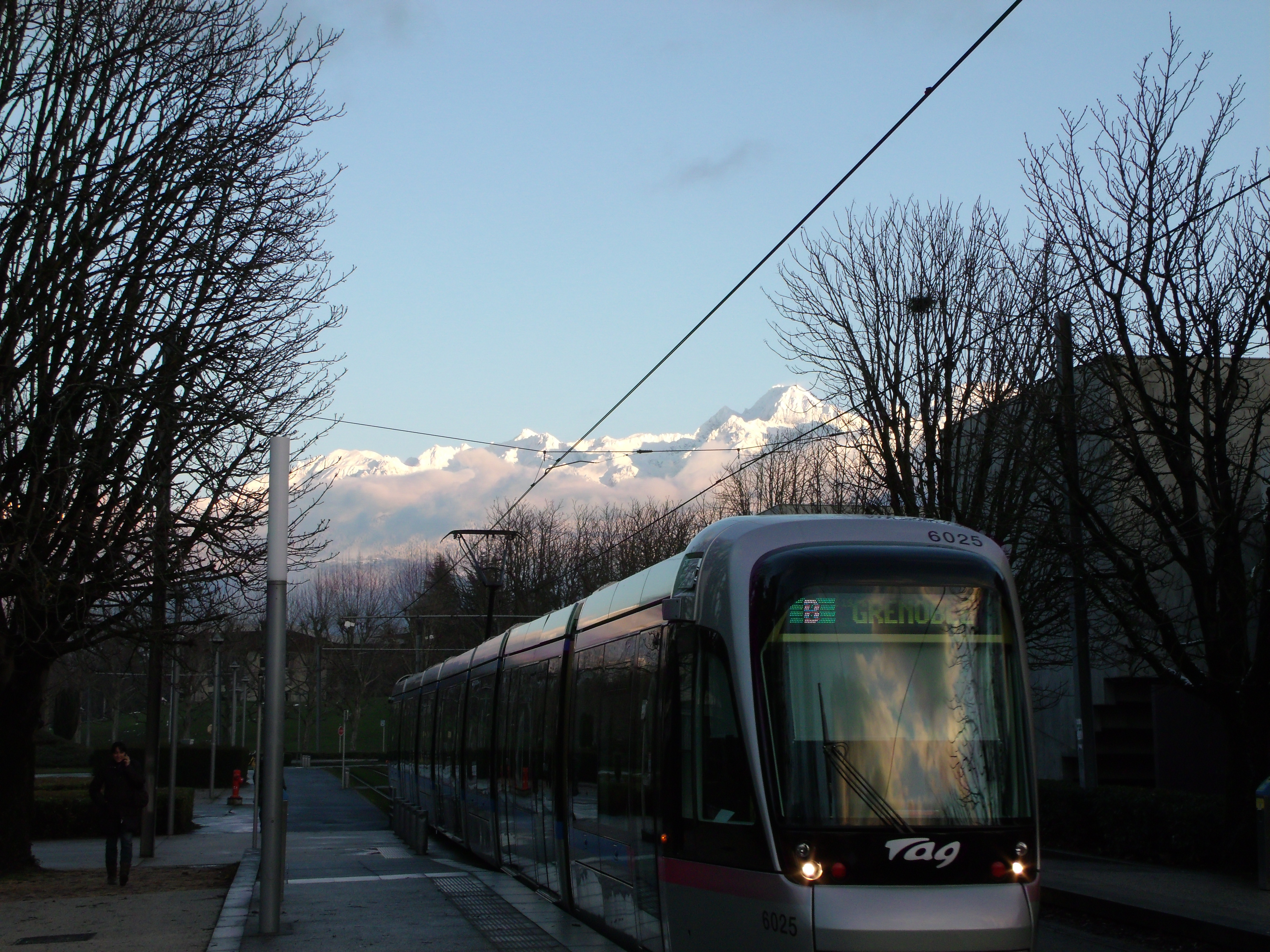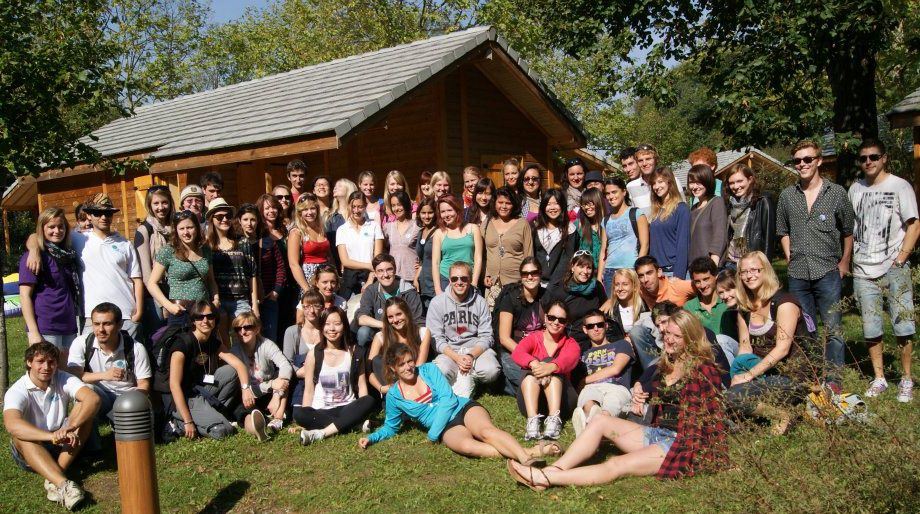Practical Information - Living in Grenoble
How to get here
There are several airports near Grenoble for reaching the town by air. The main one is Lyon, which receives flights by budget airlines from London airports all year round. It can be reached from Grenoble by train, or the slightly more expensive option, but in my opinion more convenient, is the bus that runs from the bus station in Grenoble straight to the airport at least once an hour, taking around 50 minutes.
During the ski season there are also flights from Grenoble airport, although this can be tricky to get to. In theory there are buses that run in conjunction with the flight schedule, but I would recommend ALWAYS checking the timetable before buying tickets as in my experience this is not always the case. The timetable can be found at http://www.grenoble-altitude.com/horaires.php?lg=en. Another option is Geneva airport, from where you can get some really cheap flights to England or other destinations and there is a bus that runs to the airport from Grenoble bus station.
An alternative to flying is the Eurostar. This is generally a slightly more expensive option, unless you book well in advance, but it does avoid all the annoying baggage charges and restrictions. From Grenoble you can take the TGV to Paris and then the Eurostar. However, this requires you to change stations in Paris which means taking the metro- tricky with a lot of baggage. An easier option is to go to Lille and take the Eurostar from there.
When you first arrive
The thing to remember, when you first arrive in France, is that the French love bureaucracy! And nothing gets done in a hurry! In the first couple of weeks there will be a lot of paperwork to fill in, which can get somewhat frustrating. To make life easier for yourself, I recommend bringing at least 10 passport photos with you as well as several copies of your passport. However, if you forget, or you run out, there is a copy shop on campus which provides photocopying and printing services relatively cheaply. Also, don’t panic if it feels as though you can’t sort anything out. Starting out takes time, and it’ll give you something to rant to the other international students about (paperwork stories is definitely a way to bond!)
Money
Your bank account should be one of the first things that you set up in France, as many other things, such as getting a mobile phone contract, require you to have one. Most of the banks are very helpful in this process, particularly the banks on campus, which are used to dealing with foreign students. I was with Bnp Paribas, but to be honest, it doesn’t really matter which bank you choose. Some banks do deals, such as free insurance with you account, so look out for those. If you go into a bank, they should be able to tell you everything that you will need to set up your account and arrange a meeting for you. After that, you will have to wait for them to send a card to your bank where you can collect it. This usually takes at least a week, so make sure you have enough money, or another means of withdrawing money, to last you this amount of time. Also, in France, if you forget your pin number three times your card gets swallowed by the machine (this occasionally happens just because, in which case you must inform the branch whose ATM you were using and they should be able to get it back to you) and you have to receive a new card, which also takes around a week to arrive.
Phone
The Pay-as-you-go system in France is somewhat bizarre. You pay for a certain amount of credit, but the credit has a time limit; the more you buy the longer the time limit. After this time any remaining credit you may have is removed. Therefore, most of the French are on contracts as it is the cheap option in the long term. However, as an ERASMUS student, much is organised over facebook and so I found that the Pay-as-you-go system, although annoying, worked out cheaper than a contract. A SIM card is very easy to buy, as are simple mobiles, although I just brought an unlocked phone from home. Some people did choose not to even bother getting a French number, choosing instead to use their home number. However, it is much more costly to text or call a foreign number than a French one, so I would recommend getting a French number even if you do not plan to do much calling/texting yourself, simply out of courtesy to others who may wish to contact you. This is particularly true if you are living in a collocation, as your room mates may need to contact you from time to time.
Getting around the town
Grenoble has an extensive tram system that can get you pretty much anywhere in the town. They are usually pretty regular, every 4 to 8 minutes until around 8pm every day except Sunday, and they continue until around 1am depending upon the line, although after 10pm they only run every 20 minutes. You can buy a yearly pass for around €250, cheaper than a bus pass in Warwick, and you can use the trams as well as the local buses. If you buy your pass monthly then once you have completed the CAF and have a card, you can get a reduced rate, possibly making it cheaper than the yearly pass, although this does mean queuing up each month to recharge your card. You can get away without using the tram, although if you live a distance from campus, it’s very useful for getting to lectures. Rates and maps of the tram routes can be found at http://www.semitag.com/.

Grenoble is a great place for cycling as it’s really flat, and there are loads of cycle lanes. Metrovélos are the yellow bikes that you will see everywhere in Grenoble. You can rent them from either the office on campus (tram C, stop Bibliothèques Universitaires) or at the train station. They’re good for getting around, but not great if you want to go off and explore a long way from the town as they only have 3 gears and are pretty heavy. Their major plus side is that they never get stolen, unlike a normal bike in Grenoble. This year it cost 85 euros (student rate) to rent a bike for the year, plus a deposit. You can find more information and costs at http://metrovelo.fr/. Alternatively you can buy a bike. There are usually cheap second hand bikes for sale and there is a shop called “Le petit vélo dans ma tête” where you can get help, advice and spare parts for fixing any problems.
Meeting new people
One of the hardest parts of moving to a new country is meeting new people and making a new set of friends. If you live in a residence you should meet some people who live nearby, but if, like me, you choose a collocation you will have to go out and be proactive in meeting new people. Grenoble has a large population of international students and as such has a pretty large international students association, Integre. This group is run by a few full time workers as well as many of volunteers and they organise lots of activities, from nights out to weekends away. In the first few weeks I went on a weekend away with Integre. This was a really good way to get to know people and was a good opportunity to see some of the area around Grenoble. Also the weekly bar nights out are a great way to chat to some really interesting people, as well as getting to know the town. There is a website http://www.integre-grenoble.org/website/ where you can find out all of the events that Integre is planning and if you join the facebook page you can also find out about events that way.

The Integre group has a few schemes to make your first few weeks in Grenoble easier. One is a parainage, a student who has lived in Grenoble and will take you around the town or meet you at the station when you arrive. The other is a tandem, which is someone who would like to improve their English and help you to improve your French. You can sign up for both of these schemes on the website. Their success largely depends upon the amount of effort you and your tandem are willing to put in, but I have known people to find them very useful.
